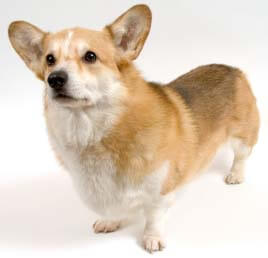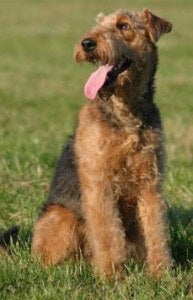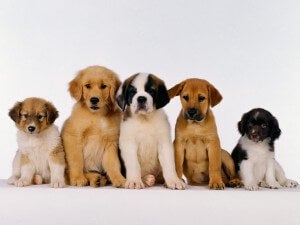
There are few species as diverse as man’s best friend. Yet, every breed from the chihuahua to the great dane has much the same genome. A recently published article in Science, however, explains that all the variety in dog coat comes down to changes in just three genes! Most human physical traits are extremely complex genetically, but this study suggests that maybe some major traits could be controlled by just a few genes. If so, this gives great hope to those wishing to treat diseases, or make improvements, on the genetic level. My new favorite sport is classifying dogs according to the three newly discovered dog coat genes: length, curl, and arrangement.
The work was led by Elaine Ostrander, head of cancer genetics at the US National Human Genome Research Institute (NHGRI) who hopes that the study of dogs will help us find patterns in our genes that code for diseases and important traits. Looking into the genetics of dogs may seem way out of the interests of the NHGRI, but linking genes to traits is serious business. Ostrander’s work shows that a complex set of phenotypes (physical characteristics) can be traced back to just a few genetic variations.
The NHGRI looked at the genomes of more than 1000 dogs from 80 breeds to find the three genes that determine fur phenotypes. They determined that just three genes determined fur types for over 90% of breeds. The FGF2 gene and its variants will give a dog either short hair, or long soft hair. The KRT71 gene and its variants will give a dog curly fur or straight fur. RSPO2 determines whether your dog’s hair grows in a wiry way with features like a mustache – called ‘furnishings’ by breeders.

Take a look at a random breed of dog: say the Pembroke Welsh Corgi – and you can see that it has long hair (FGF2 variant), that is straight (KRT71 standard), and without furnishings (RSPO2 standard). An Airedale Terrier has short (FGF2 standard), curly (KRT71 variant), and wiry hair (RPSO2 variant). Man, I could do this all day.

Besides my new favorite game of ‘genetically analyze that puppy’, the benefits of the NHGRI study are pretty profound. The fewer genes responsible for a phenotype, the greater chance that genetic engineering can manipulate those genes for advantage. Whether this leads to genetic doping therapies for diseases, or designer babies, we’re likely to see the concept play a major role in genetic experiments to come. In the meantime, enjoy staring at analyzing the puppies below. It’s all for science, I swear. Cute, cute science.



